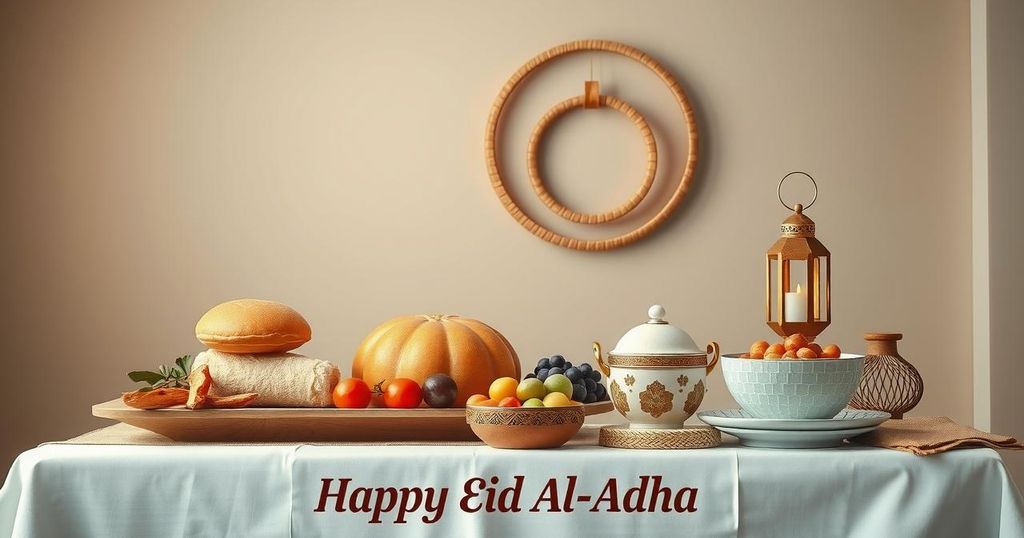In 2025, Eid al-Adha in Morocco will see a suspension of traditional sheep slaughter due to economic hardships stemming from climate change. King Mohammed VI encourages compassion as livestock herds dwindle, while new dining trends may emerge, marking a shift in celebration practices. Scheduled for June 6-10, the holiday will illustrate the importance of faith and family amidst adversity.
Eid al-Adha, celebrated two months after Ramadan, is a significant event in Morocco that reflects the country’s rich cultural and religious traditions. The holiday brings together family, faith, and food, marking a time of generosity and charity. For Western tourists, sharing these experiences with local families offers a unique insight into Moroccan culture.
In a significant announcement, King Mohammed VI advised Moroccans to refrain from the customary sheep or goat slaughter associated with Eid al-Adha. This decision, prompted by the difficult economic conditions facing many families due to climate change impacts, aims to prevent hardship for those with limited incomes.
Scheduled for June 6-10, 2025, Eid al-Adha presents unique challenges, as repeated drought conditions in Morocco have severely affected livestock numbers. The reduction of over a third of cattle and sheep herds in the past decade signifies the gravity of the situation, making this year’s celebration different from previous ones.
In summary, the upcoming Eid al-Adha in Morocco is poised to be a period of reflection amid challenges posed by climate change. The king’s decision to refrain from traditional sheep sacrifices highlights the need for compassion during difficult times. As dietary trends evolve, the celebration will adapt, emphasizing practicality and resilience in a community facing adversity.
Original Source: www.moroccoworldnews.com






